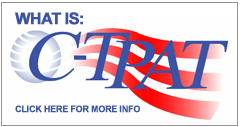Honest employees, who don’t want to work alongside thieves, substance abusers and other unsavory types, will oftentimes not come forward because they’re fearful about getting dragged into a potentially uncomfortable or even dangerous situation.
This fear factor is not completely unfounded. In fact, there is an actual term for it: “whistleblower syndrome”. There have been hundreds of cases of employees receiving threats, having their property damaged and even being assaulted after informing management about a dishonest coworker.
However, companies cannot afford to be naive and unaware about illegal and unethical activity taking place. White and blue collar employees who commit fraud, embezzlement or inventory theft, as well as harassment or discrimination can easily cost their companies six and even seven figures.
Workplace substance abuse can be equally costly. One distributor was sued for over two million dollars after a worker who tested positive for cocaine caused a serious injury to a coworker with a forklift. Prior to trial, statements were taken from an array of employees who testified that drugs were widely used and sold inside the distribution center. Fearful of the consequences, the distributor agreed to a significant settlement with the injured worker rather than go to court.
Confronted with these realities, it’s imperative that management open up a line of communication with their workforce. To be effective however, this communication line must make the employees feel safe and secure. Otherwise, it will not be nearly as effective as it needs to be.
Following these 4 guidelines will dramatically increase the success of your hotline program:
- Offer Callers Total Anonymity, Not Just Confidentiality. The difference is that offering confidentiality means callers have to trust that you won’t reveal their identity. However, if you provide anonymity, i.e., you never require callers to provide their names, you’re giving them the security that they want and therefore increasing the odds of getting them to tell you what they know.
- Outsource. It’s a proven fact that employees feel far more comfortable speaking with someone who won’t recognize their voice, speech pattern or accent. Additionally, callers prefer to speak with experienced professionals who routinely deal with these types of security related problems.
- Promote It Positively and Consistently. You can avoid the “Big Brother” syndrome if you carefully word your posters and handout materials so they emphasize the benefits (which are many) of working in a theft-free, drug-free environment.
- Talk About the Program As Often As Possible. During new employee orientations and communication meetings take some time to explain how the program operates. The more employees understand how the program works, the more likely they’ll be to use it when they become aware of illegal or unethical activity.



